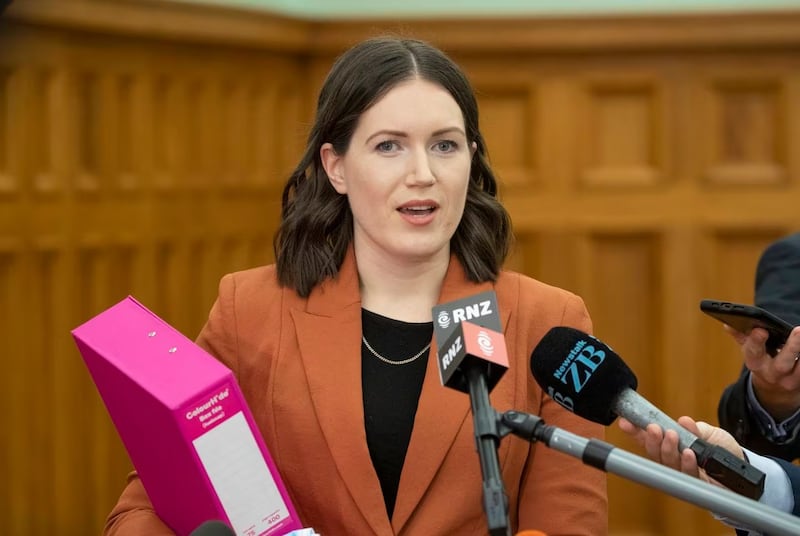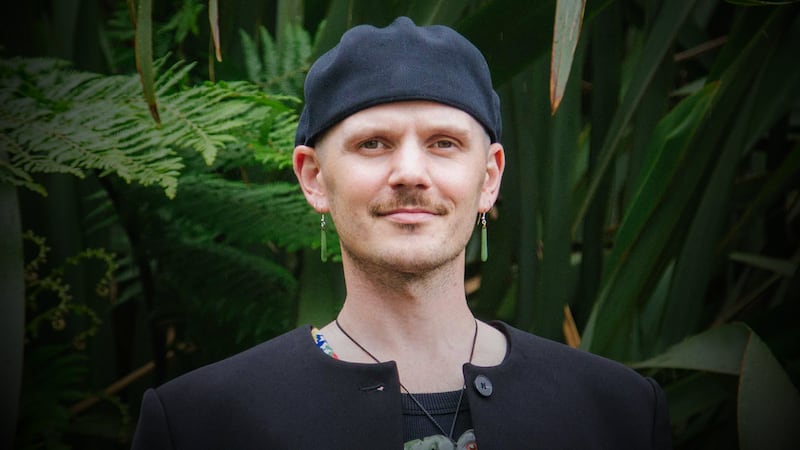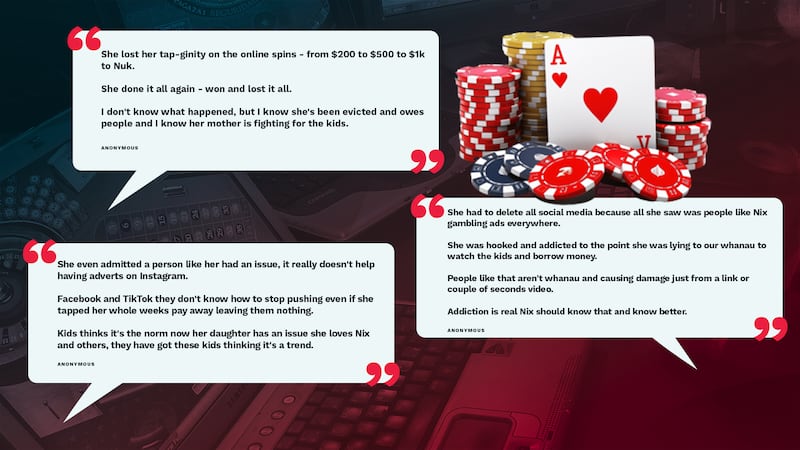Fines have so far failed to completely deter social media influencers and companies from promoting offshore online casinos in Aotearoa, with some reportedly being paid tens or even hundreds of thousands of dollars for a single campaign.
The offers continue despite it being illegal, and gambling harm and addiction continue to worsen.
A new bill currently before Parliament seeks to regulate online casino gambling, aiming to bring oversight to the long-unregulated online pokies industry. While the bill has been described as overdue, many are calling it toothless and weak in addressing the true scale of harm, particularly for Māori communities.
The Minister for Internal Affairs, Brooke van Velden, says she is committed to ensuring the legislation includes strong consumer protections and harm minimisation measures. She says the proposed bill would raise penalties for promoting illegal online gambling from $10,000 to up to $300,000.
“Currently under our laws, it is illegal to advertise gambling online. The [proposed] bill will make it a punishable offence of up to $300,000. I want to make it really clear: people shouldn’t be advertising gambling online. I think it’s very harmful for communities,” she said.
Van Velden says more detailed restrictions will be set through regulations that follow the legislation, including social media promotion by influencers.

42 influencers continue to be monitored – DIA
The Department of Internal Affairs, which is responsible for monitoring and regulating gambling, has confirmed that dozens of influencers are currently under active surveillance for promoting online gambling.
“The Department is currently monitoring 42 influencers. In total, we have issued one fine and 12 warning letters. We continue to monitor social media influencers for instances of promoting online gambling,” Vicki Scott, Director Gambling, said.
The one fine was issued to influencer Millie Elder-Holmes, who was fined $5,000 after ignoring a warning letter. The fine has since been paid.
She posted on social media on Monday evening with a screenshot of a NZ Herald story about the fine. She asked, “How is this public information? Love paying a fine for something that’ll be legal in February anyway?” as seen on her Instagram story.
Is it illegal for influencers to promote online gambling? And will it be after the bill is introduced?
The Internal Affairs Minister and her department are clear that advertising or promotion of online gambling on social media is illegal under the current law. If the new bill is introduced in its current state, it would still likely be illegal.
To advertise, you would have to hold a licence, but that will not apply to social media influencers, with continued restrictions on independent third-party promotions.
Under the Gambling (Regulation of Online Casino Gambling and Harm Prevention) Amendment Bill, the government will auction up to 15 online casino licences for the first time.
The initial licences will be for a three-year term, with applications expected to open in early 2026 and platforms going live by mid-2026.
The licences will be open to both New Zealand and international operators.
Advertising will be permitted under the new regime, but only licensed operators will be permitted to advertise their online gambling platforms, and their advertising will be subject to form and content restrictions.
The move is expected to generate approximately $200 million in upfront licence fees for the government.
However, there are growing concerns that large offshore companies, better resourced to win the bids, will dominate the market. That has raised further concern for local operators and for vulnerable communities already disproportionately harmed by gambling.
Māori communities bear the brunt – again
Green Party spokesperson for gambling reform, Benjamin Doyle, says Māori communities have been deliberately targeted by offshore gambling companies who are using Māori influencers to funnel money out of already vulnerable whānau.
In an unusual move, the Greens voted in support of the bill at its first reading.

“These mega offshore industries are targeting vulnerable people, and that is specifically our whānau Māori,” Doyle said.
“They’re offering them incredible sums of money, up to $500,000. The fines right now are only $10,000, so the risk is worth it for some.”
Doyle says the bill needs major improvements, including a total ban on gambling advertising, stronger investment in harm reduction services, and regulation of features like loot boxes in online games.
“The way that this bill has been framed completely ignores the specific nuance of Māori contexts. We need to ensure that Te Tiriti o Waitangi is reflected. Our people were excluded from the start, and any engagement now through select committee is too late,” they said.
Te Pāti Māori would not support the bill, with Te Tai Tonga MP Tākuta Ferris being clear that it will still have a disproportionate impact on Māori, whether it is regulated or not.

“This Bill is a simple tax-raising exercise, and if this government is deciding how to spend that money, we know that the communities that need it the most will not see a cent,” he told the House.
Ferris says Māori are three-and-a-half times more likely to be problem gamblers than other New Zealanders, and problem gambling has had a devastating impact on the cohesion, cultural identity, and financial stability of whānau Māori.
“Almost half of all rangatahi between 16 and 24 years old have gambled in the past year, and they make up 15% of all moderate to high-risk gamblers,” he said.
Broken trust and lasting harm
Online anti-gambling advocate and TV writer Annettee Tahitahi Fifield says the promotion of online gambling by Māori influencers like Nix Adams and others has caused deep hurt and damage, particularly for rangatahi who look up to these personalities.
“I felt really hurt when she started promoting the gambling,” Fifield said.
“And then when she was called out on it, her response was something like, ‘Why would I listen to the opinions of people below me?’ That was heartbreaking.”
She says it’s personal to her, as the daughter, sister, aunty, niece, cousin, and friend of people who have been severely harmed by gambling.
“Gambling does nothing for Māori. It does nothing but cause harm. I have never, never heard a positive story about gambling. When a parent wins big, they just take their kids to KFC for the night, and the money’s gone the next day. There is just nothing good about it.”
Tahitahi Fifield reached out to others online to ask them to share their stories anonymously.
One anonymous person described their cousin’s descent after clicking a link shared by an influencer.
“She lost her tap-ginity on the online spins from $200 to $500 to $1k to nuk. She done it all again, won and lost it all. I don’t know what happened, but I know she’s been evicted and owes people. Her mother is now fighting for the kids,” one person shared.
Another person described how their friend became addicted after being constantly exposed to gambling content.
“She had to delete all social media because all she saw was people like Nix gambling ads everywhere. She was hooked and addicted to the point she was lying to our whānau to watch the kids and borrow money. People like that aren’t whānau and are causing damage just from a link or a couple of seconds’ video.”
Fifield also pointed to the mental health toll, citing that 25 percent of people who seek treatment for gambling addiction attempt suicide.
“Gambling addiction is the most harmful of all addictions. That’s not harm minimisation. That’s devastation.”
Another anonymous account shared concerns about parasocial influence and generational harm.
“It really doesn’t help having adverts on Instagram, Facebook, and TikTok. They don’t know how to stop pushing, even if she tapped her whole week’s pay away. Now her daughter has an issue. She loves Nix and others. They’ve got these kids thinking it’s a trend.”

One contributor described how online gambling worsened their ex-partner’s drug addiction.
“My ex-partner gambled away our COVID payout for the business in one trip. I tried so hard to help him. He never stopped gambling, never stopped his crack addiction. He was falling prey to online pokies even more without transport, with all the ads he was seeing. He was killed last year by another crackhead. Now my baby has no dad.”
Another person revealed how the lure of influencer content impacted them during a vulnerable time.
“When I’ve been in dark places or broke, I’d end up scrolling all these influencers. That gambling link is screaming at you to click on it, especially if it’s accompanied by a video of how much they won. I did that in secret, pretending I wasn’t drowning in bills. That shit will get you when you’re down and out, and we don’t all come back from it.
“Gamble responsibly is just that, bullshit. Gambling is a drug as much as alcohol or weed. It preys on vulnerable communities.”
Online personality and anti-gambling advocate Holly-May Neho, who describes herself as a former ‘influencer,’ has turned down many offers to promote gambling herself, even as of last week, says the financial reward is not worth the social damage.
She says she knows of other influencers who have had to block the offshore online gambling companies because they are so persistent.
“I just want to help people understand that they’re not doing this to help you. They’re doing it to help themselves. This is not going to benefit you at all. And I’m speaking as someone who has been on the other side, who has been an influencer. I know how it works.”
“You know that they think that these influencers are their whānau, and that they love them and they care for them. But they don’t,” she said.
“You’re selling this to an already vulnerable community. It’s like, ‘Here’s a meth pipe, but do it responsibly?’ When you have a following, it comes with responsibility. And it’s either you have morals or you don’t. It’s really that simple”
Bill open for submissions
Minister van Velden, who herself has never bought a lotto ticket or had a tap on the pokies, says harm minimisation is the core aim of the legislation, and more detailed rules will be developed through regulation. She says she wants to ensure that social media influencers and targeted ads are properly addressed.
“I’m looking at how we can ensure that the law shows that ads are very blatantly ads, not just someone living their life. We’re also making sure kids aren’t seeing these targeted ads,” she said.
Annette Tahitahi Fifield is encouraging people to have their say on the bill. For her, her message will be very clear to the committee.
“Online gambling should be illegal. I don’t think that it should be legal at all. All it does is cause harm to Māori, and the only justification for it is tax revenue. But that tax revenue is coming out of Māori families’ pockets.”
Public submissions on the Gambling (Regulation of Online Casino Gambling and Harm Prevention) Amendment Bill are open until August 17.
Te Ao Māori News approached Nix Adams and Millie Elder-Holmes through their social media and email addresses for comment on the bill and their promotion of online gambling. They did not respond.
We also approached other influencers who continue to promote gambling on their social media to share their perspectives, but they did not respond.
Offshore gambling companies we contacted did not reply to our media requests either.
Where to get help
- Gambiling Helpline: Free phone 0800 654 655 Text 8006 Chat online, available 24/7
- PFG Services: Free phone 0800 664 262, Free text 5819, or email help@pgf.nz
- Mapu Maia: Free phone 0800 21 21 22
- Pātea: Visit patea.nz
- Head to safergambling.org.nz for more resources.



